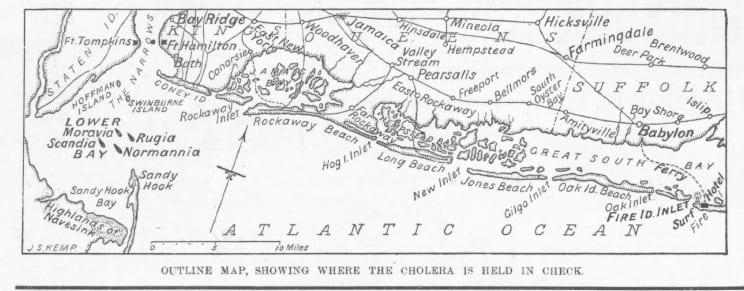In the third installment of this series we will be looking at two examples of colonists challenging established relationships of authority and the deferential society of the early colonial period through the New Jersey Land Riots and Leisler’s Rebellion. Before we talk about the specific challenges to authority it is important to understand what it was to have public power in the early colonial period. As I have come to understand it, power and authority were generally acknowledged by an unspoken social contract. Early colonial society was very deferential. Authority was given to those of a higher social standing with the accompanying wealth and connections because it was believed that those who had no material wants were more detached from their own needs and could thus concern themselves with the interests of the commonweal. If a public figure was not acting in the interests of the public good then the people had the prerogative to express their dissatisfaction and remind the offending figure of the duty their privilege conveyed.
Tag: Class
Giovanni Boccaccio wrote the Decameron in the mid-fourteenth century as a collection of stories that detail experiences of Florentines during an outbreak of the Black Death. He relayed these stories within the narrative framework of a party of young women and men, known as the brigata, who told the stories to each other after fleeing to the countryside to avoid the plague. The women narrators of the brigata outnumber the men seven to three. The brigata are depicted in the John William Waterhouse painting, A Tale From the Decameron, painted over 400 years after Boccaccio wrote the Decameron.
With approval from Governor Flower, Jenkins had purchased the debilitated Surf Hotel from proprietor David Sturges S. S. Sammis for the inflated price of between $210,000 and $250,000. In the 1850s Sammis opened the hotel, an immensely popular and profitable summer resort in its time that had fallen into disrepair by the 1890s. After the purchase Jenkins had the site cleaned up and staffed with a manager and physician, and police guards. In anticipation of the passengers of the Normannia and their five-star quarantine, “Forty French cooks and waiters” were requested but never arrived. They “were stopped at Babylon and stoned,” effectively preventing them from embarking for Fire Island. For selling the property to the state as a quarantine site Sammis was threatened with a tar and feathering by unidentified individuals.
In my previous post, Being Blue in New York, I sketched out a brief history of cholera in New York City and the development of disease theory and of prevention and management strategies over the course of several outbreaks. Today I am going to talk about quarantine, class, and immigration.
© 2024 Crisis and Catharsis
Theme by Anders Noren — Up ↑




